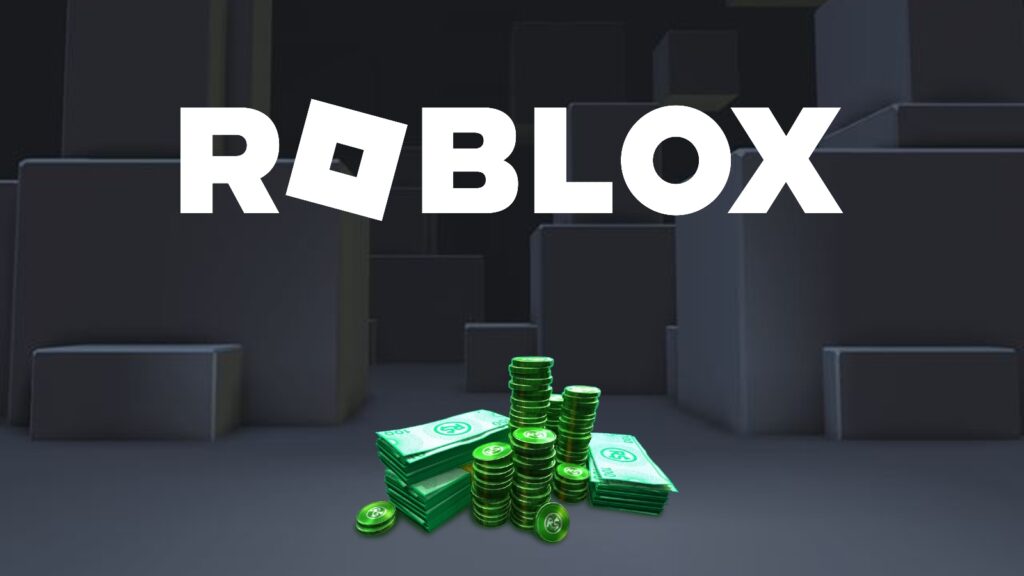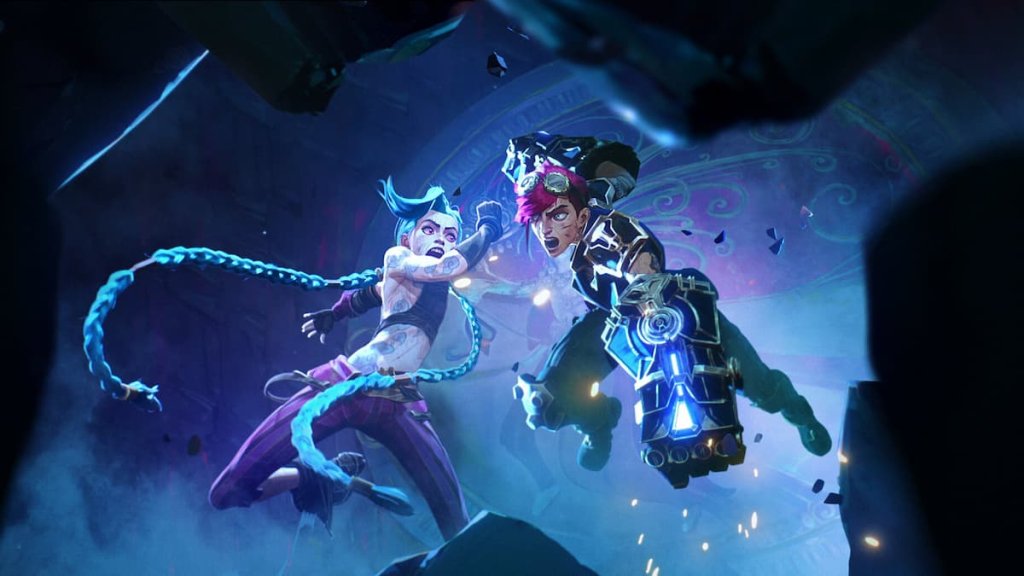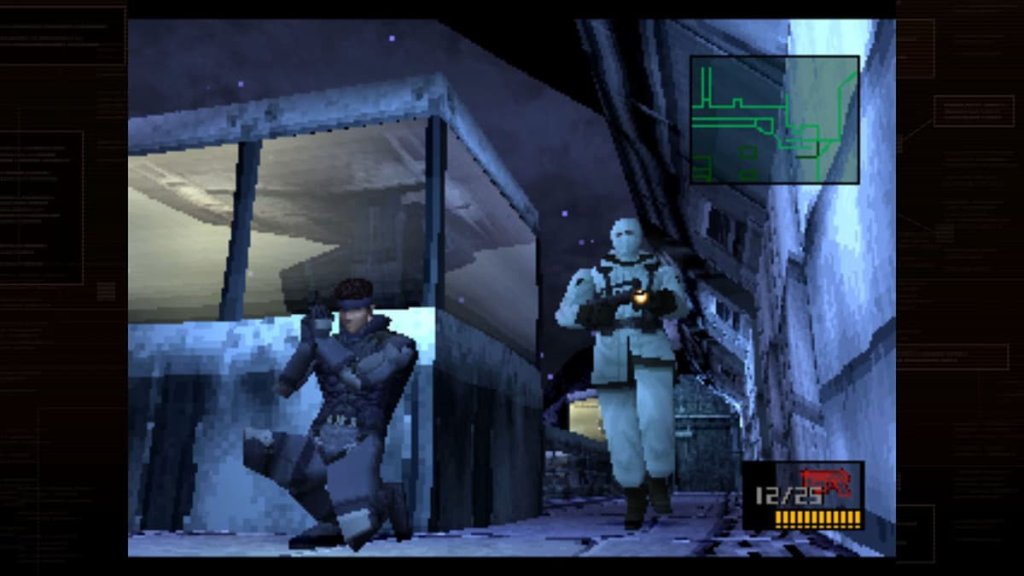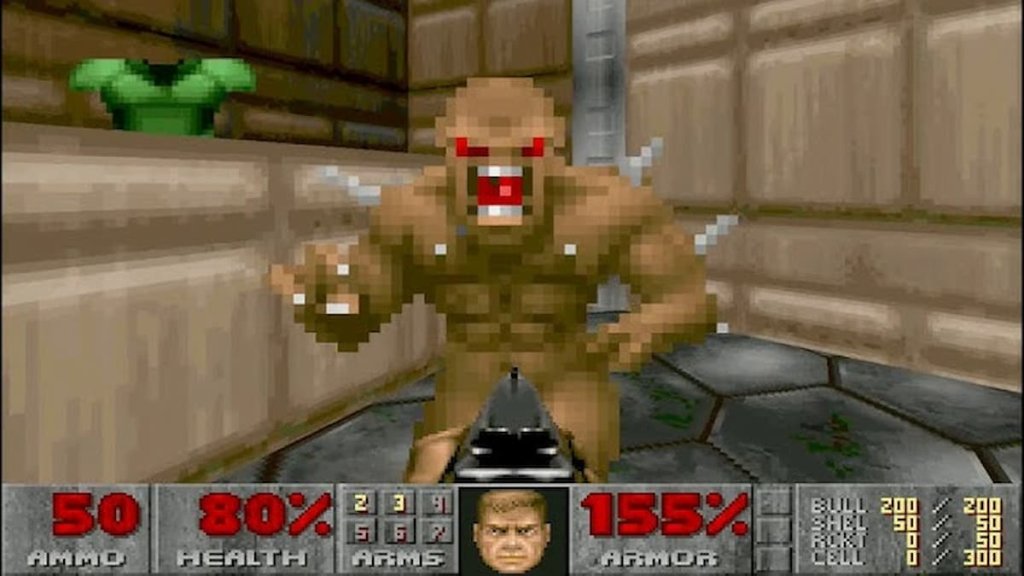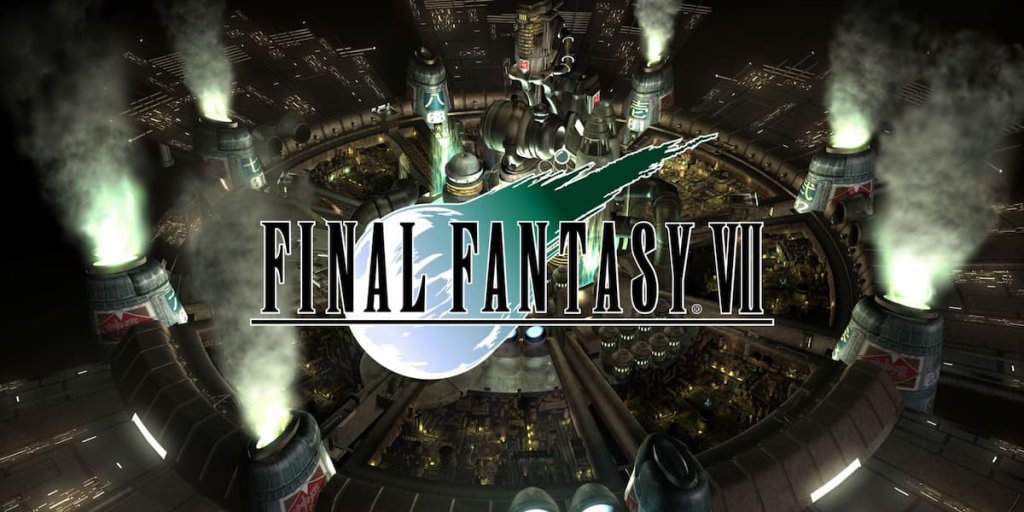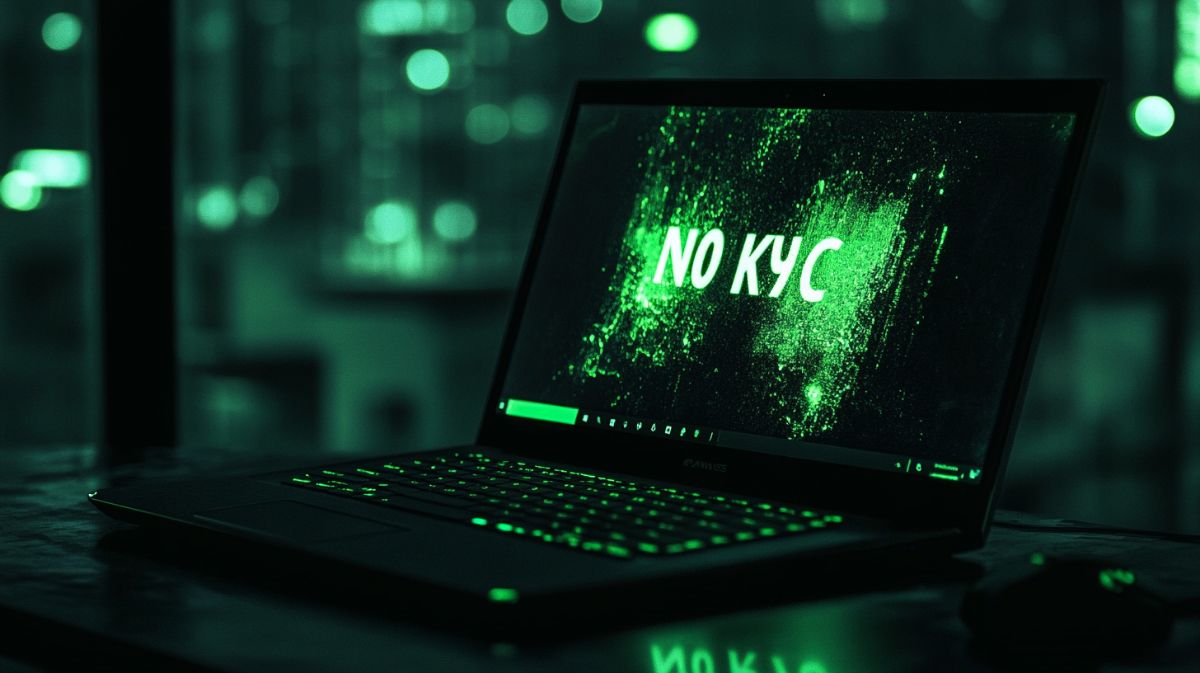All Mortal Kombat Games in Order Both By Release and Story Timeline
Mortal Kombat first appeared in arcades in 1992, and since then, it’s become one of the longest-running and most impactful fighting franchises out there. Created by Ed Boon along with John Tobias, the series pushed the limits in its time with digitised actors, crazy Fatalities, and a huge lineup of martial arts masters and iconic creatures. Over more than three decades, there have been many Mortal Kombat games released across consoles, handheld systems, and even mobile phones. Whether it was sequels or spin-offs, or even compilations, each entry tried doing something fresh with the gameplay or the storyline. For newcomers or even longtime players, figuring out what game fits where isn’t easy. Do you go by release order, or the timeline in-game, especially when the timeline gets rebooted again and again? So here are all Mortal Kombat Games in Order so you stay on top of the story.
- 1. All Mortal Kombat Games in Order of Release
- 2. Mortal Kombat Games in Order of Release vs. Story Timeline
- 3. Original Timeline: Mortal Kombat Games in Chronological Order
- 1. Mortal Kombat Mythologies: Sub-Zero (1997)
- 2. Mortal Kombat: Special Forces (2000)
- 3. Mortal Kombat (1992)
- 4. Mortal Kombat: Shaolin Monks (2005)
- 5. Mortal Kombat II (1993)
- 6. Mortal Kombat 3 (1995)
- 7. Ultimate Mortal Kombat 3 (1995)
- 8. Mortal Kombat Trilogy (1996)
- 9. Mortal Kombat 4 (1997)
- 10. Mortal Kombat Gold (1999)
- 11. Mortal Kombat Advance (2001)
- 12. Mortal Kombat: Deadly Alliance (2002)
- 13. Mortal Kombat: Tournament Edition (2003)
- 14. Mortal Kombat: Deception (2004)
- 15. Mortal Kombat: Unchained (2006)
- 16. Mortal Kombat: Armageddon (2006)
- 17. Ultimate Mortal Kombat (2007)
- 18. Mortal Kombat vs. DC Universe (2008)
- 4. Reboot Timeline: Mortal Kombat Games in Chronological Order
- 19. Mortal Kombat (2011)
- 20. Mortal Kombat Arcade Kollection (2011)
- 21. Mortal Kombat X (2015)
- 22. Mortal Kombat Mobile (2015)
- 23. Mortal Kombat 11 (2019)
- 24. Mortal Kombat 11: Aftermath (2020)
- 25. Mortal Kombat 11 Ultimate (2020)
- 26. Mortal Kombat: Onslaught (2023)
- Mortal Kombat 1 (2023)

All Mortal Kombat Games in Order of Release
Here’s a full list of Mortal Kombat games released up to May 2025. It includes everything from main titles and upgrades to mobile entries and spin-offs. Gaming through them in this order shows you how gameplay, visuals, and online play have changed over the years.
- Mortal Kombat (1992)
- Mortal Kombat II (1993)
- Mortal Kombat 3 (1995)
- Ultimate Mortal Kombat 3 (1995) – Expanded MK3
- Mortal Kombat Trilogy (1996) – Upgrade + compilation
- Mortal Kombat Mythologies: Sub-Zero (1997) – Spin-off adventure
- Mortal Kombat 4 (1997)
- Mortal Kombat Gold (1999) – MK4 with extras
- Mortal Kombat: Special Forces (2000) – Spin-off
- Mortal Kombat Advance (2001) – GBA version of UMK3
- Mortal Kombat: Deadly Alliance (2002)
- Mortal Kombat: Tournament Edition (2003) – GBA Deadly Alliance
- Mortal Kombat: Deception (2004)
- Mortal Kombat: Shaolin Monks (2005) – Co-op spin-off
- Mortal Kombat: Armageddon (2006)
- Mortal Kombat: Unchained (2006) – PSP Deception port
- Ultimate Mortal Kombat (2007) – NDS version of UMK3
- Mortal Kombat vs. DC Universe (2008) – Crossover fighter
- Mortal Kombat (2011) – Soft reboot of the original trilogy
- Mortal Kombat Arcade Kollection (2011) – Classic compilation
- Mortal Kombat Mobile (2015) – Mobile fighter
- Mortal Kombat X (2015)
- Mortal Kombat 11 (2019)
- Mortal Kombat 11: Aftermath (2020) – Story DLC
- Mortal Kombat 11 Ultimate (2020) – Complete bundle
- Mortal Kombat: Onslaught (2023) – Mobile RPG (closed in 2024)
- Mortal Kombat 1 (2023) – Full franchise reboot
Mortal Kombat Games in Order of Release vs. Story Timeline
Across its long history, Mortal Kombat has experienced two major continuity shifts that reshape character arcs and world-building:
- Original Timeline (1992-2008) The storyline unfolds sequentially from the first arcade game through Armageddon, with spin-offs like Mythologies and Shaolin Monks providing character backstories.
- Reboot Timeline (2011-present) Beginning with Mortal Kombat (2011), the timeline diverges when Raiden sends a warning to his past self, altering events. A further reset occurs at the end of Mortal Kombat 11: Aftermath, birthing Mortal Kombat 1 (2023).
If your goal is to follow the cast’s saga from inception to modern twists, it’s generally recommended to play all the Original Timeline entries up through Mortal Kombat: Armageddon (2006), then jump to the Reboot Timeline starting with the 2011 game, continuing through MKX, MK11 (plus Aftermath), and ending with Mortal Kombat 1. Below, we break down each title in that narrative sequence.
Original Timeline: Mortal Kombat Games in Chronological Order
1. Mortal Kombat Mythologies: Sub-Zero (1997)
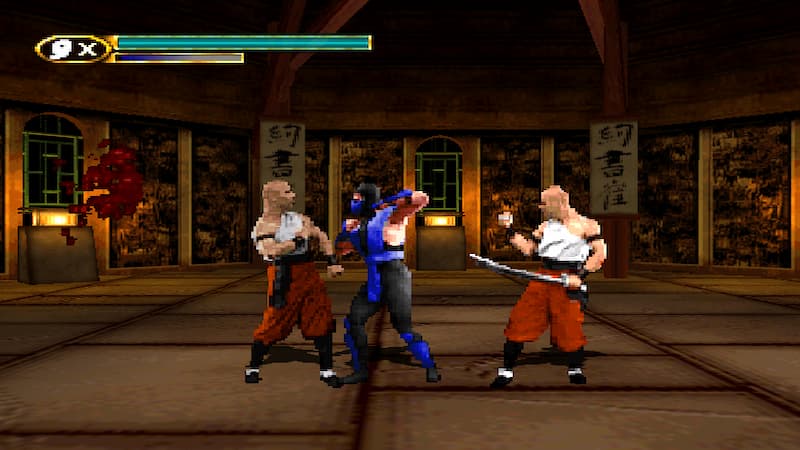
Midway Games, Warner Bros. Games
A spin-off action-adventure starring Sub-Zero on his solo quest for revenge against Quan Chi. Diverging from the tournament format, it delves into Netherrealm lore, though its clunky controls and hit-and-miss design made it a cult oddity rather than a classic.
2. Mortal Kombat: Special Forces (2000)
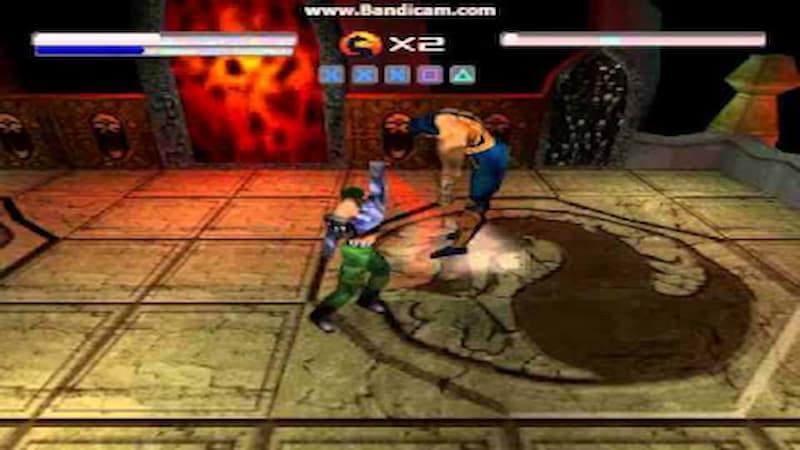
Image Credits: Midway Games, Warner Bros. Games
Another one-off spin-off focuses on Sonya Blade’s Jax partner, Major Jackson Briggs. Criticised for poor gameplay, it’s largely ignored in official canon but reflects the era’s experimentation.
3. Mortal Kombat (1992)
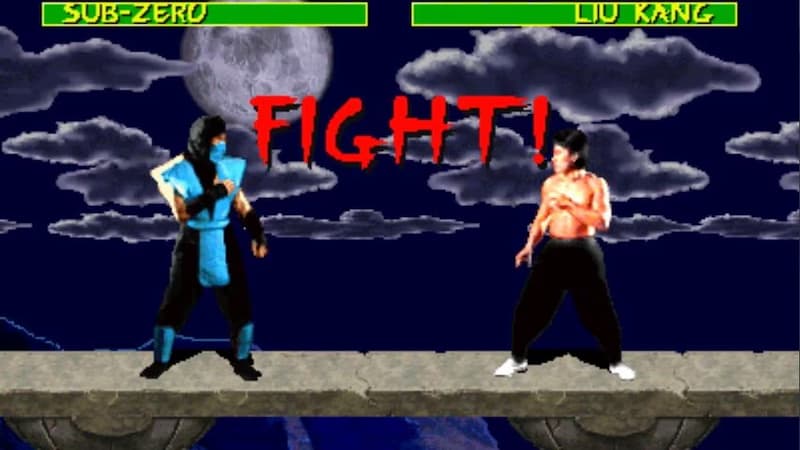
Image Credit: Midway Games, Warner Bros. Games
The tournament begins. Outworld’s sorcerer Shang Tsung hosts the first Mortal Kombat tournament on his island, pitting Earthrealm’s champions Liu Kang, Johnny Cage, Sonya Blade, Raiden, and others against Outworld combatants. Known for its revolutionary digitised actors, four-button controls, and gruesome “Fatalities”, this debut established the series’ core mechanics and lore.
4. Mortal Kombat: Shaolin Monks (2005)
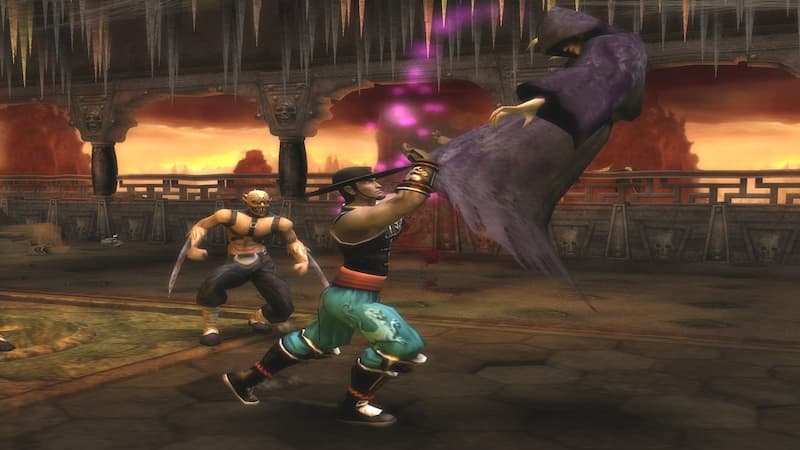
Image Credit: Midway Games, Warner Bros. Games
A co-op action-adventure retelling of the events between MKII and MK3, starring Liu Kang and Kung Lao. Praised for its combat and exploration, it expands fan-favourite character dynamics outside the 1-on-1 fighter mould.
5. Mortal Kombat II (1993)
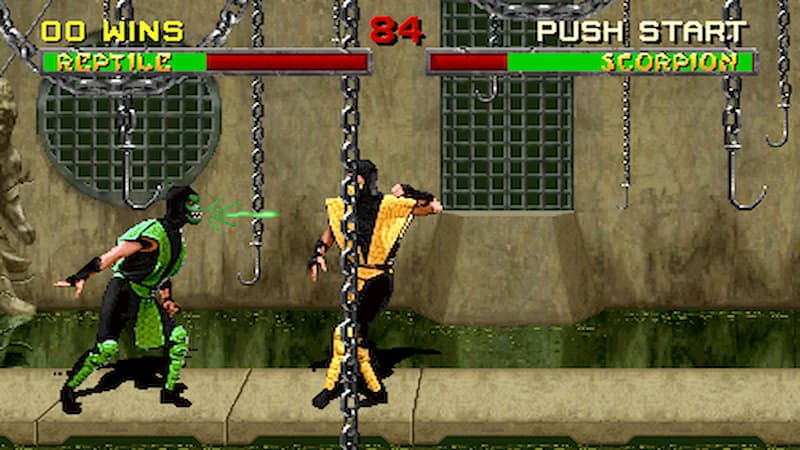
Image Credit: Midway Games, Warner Bros. Games
After Shang Tsung’s defeat, Emperor Shao Kahn resurrects the tournament on Outworld soil. New fighters (Kitana, Mileena, Baraka) and mechanics (combo system) arrive, deepening the narrative: Liu Kang must rescue Earthrealm again, while subplots hint at betrayal and hidden lineages.
6. Mortal Kombat 3 (1995)
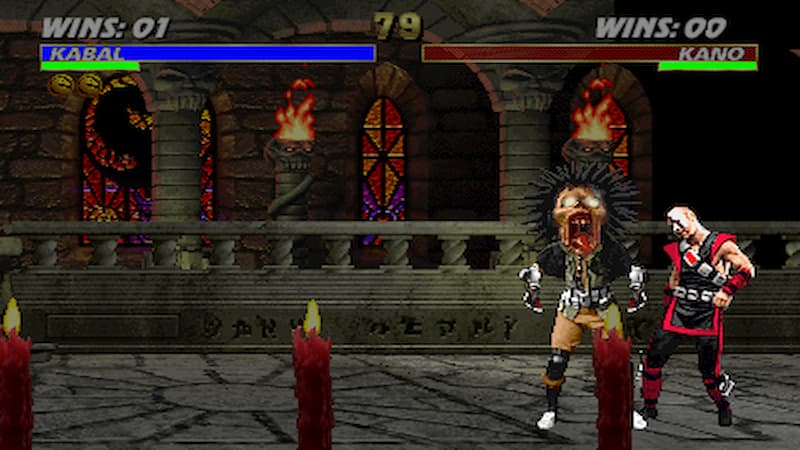
Image Credit: Midway Games, Warner Bros. Games
Shao Kahn invades the Earthrealm directly, tearing down the barrier between realms. With the addition of weapons-based combat and a run meter, MK3 expanded the roster (Sheeva, Kabal, Sindel) but divided fans with its dramatic tone and rapid button-mashing style.
7. Ultimate Mortal Kombat 3 (1995)
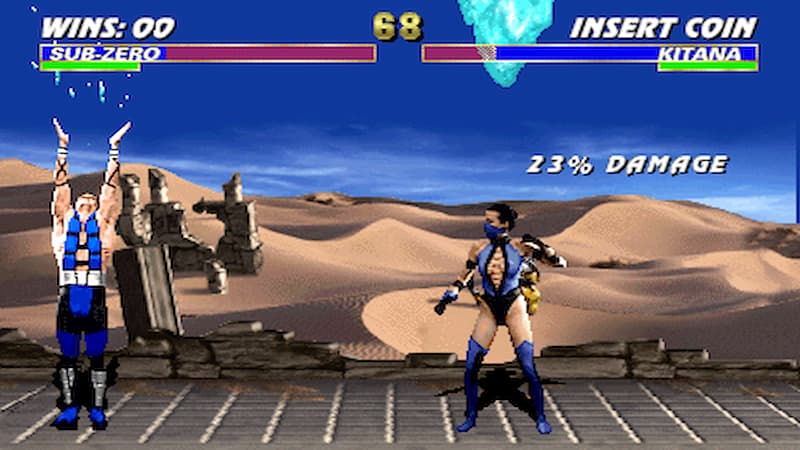
Image Credit: Midway Games, Warner Bros. Games
An upgraded MK3, this edition restores missing characters (e.g., Reptile, Kitana) and rebalances gameplay. It stands as the definitive arcade version of the “Invasion” saga, critical for story completion before the compilation that follows.
8. Mortal Kombat Trilogy (1996)
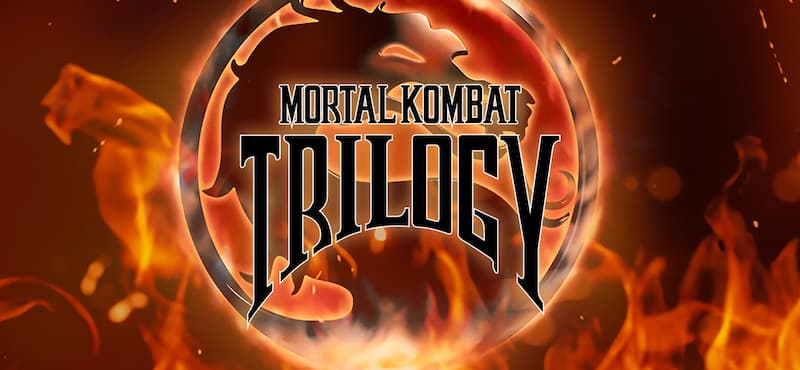
Image Credit: Midway Games, Warner Bros. Games
This all-in-one compilation for home consoles merges MK3’s engine with all prior characters. While not advancing the plot, it serves as the ultimate character encyclopedia and allows “what if” matchups.
9. Mortal Kombat 4 (1997)
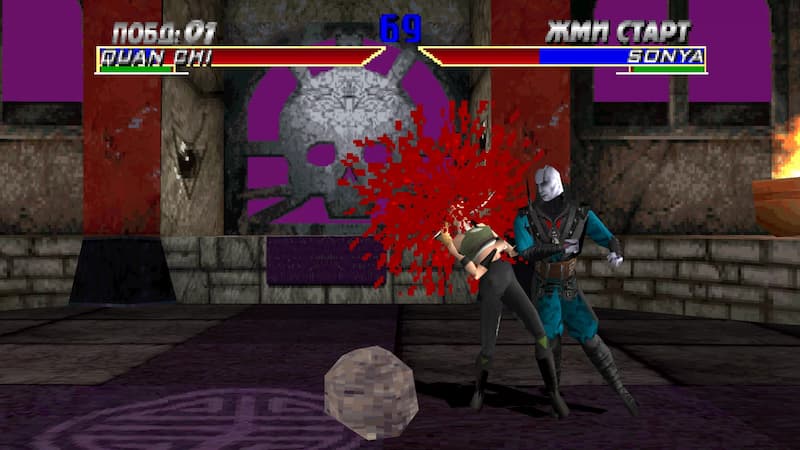
Image Credit: Midway Games, Warner Bros. Games
The first fully 3D entry, MK4 shifts to polygonal models and introduces weapon select. The story reunites heroes and villains to stop Shinnok, a fallen Elder God. Though graphic features impressed, many felt the transition sacrificed depth for novelty.
10. Mortal Kombat Gold (1999)
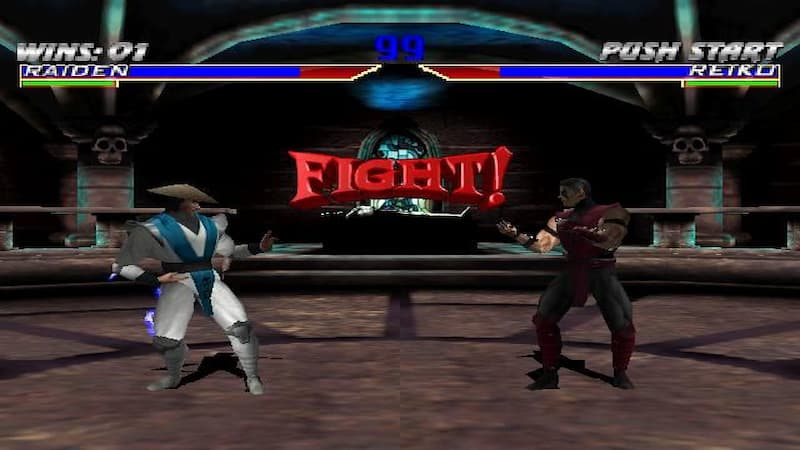
Image Credit: Midway Games, Warner Bros. Games
A Dreamcast-exclusive upgrade to MK4, Gold adds console-exclusive characters like Khameleon and Sareena. It’s a footnote in the timeline, preserving MK4’s narrative but offering a more robust roster for home audiences.
11. Mortal Kombat Advance (2001)
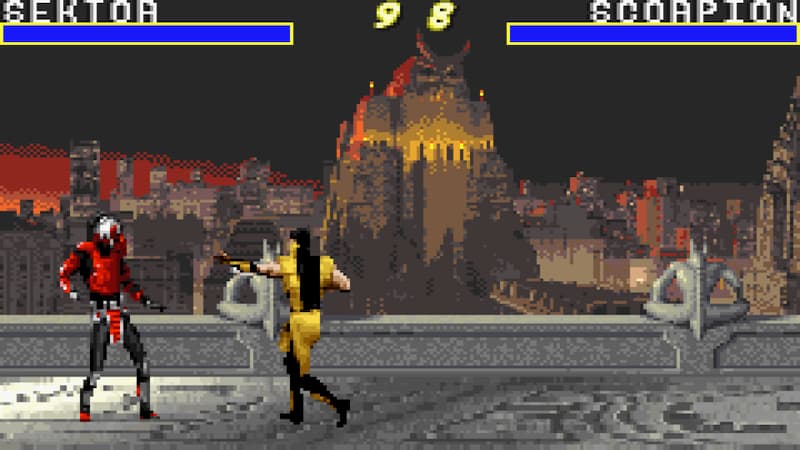
Image Credit: Midway Games, Warner Bros. Games
A Game Boy Advance adaptation of Ultimate Mortal Kombat 3 with pared-down graphics and simplified mechanics. Despite hardware limits, it retained key fatalities and roster members, letting handheld gamers experience the classic trilogy.
12. Mortal Kombat: Deadly Alliance (2002)
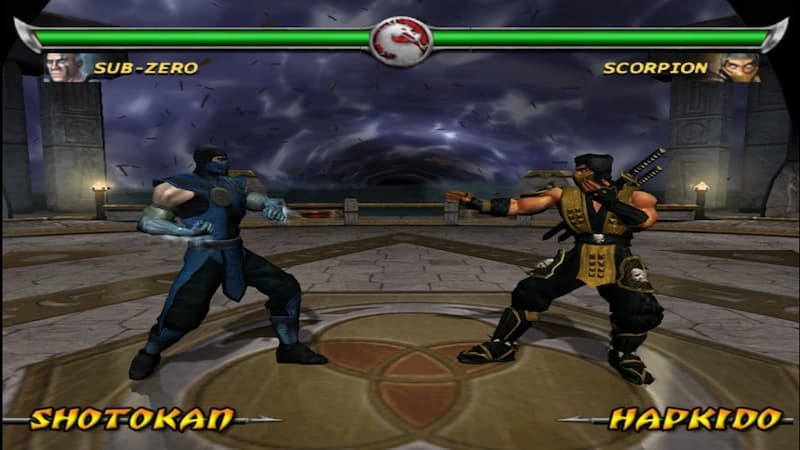
Image Credit: Midway Games, Warner Bros. Games
In the first true sequel to MK4, Quan Chi and Shang Tsung form an alliance aiming to destroy the Earthrealm’s defenders. This entry overhauls combat with a fighting style/class system and introduces weapons interactively. A turning point in narrative tone and mechanics.
13. Mortal Kombat: Tournament Edition (2003)
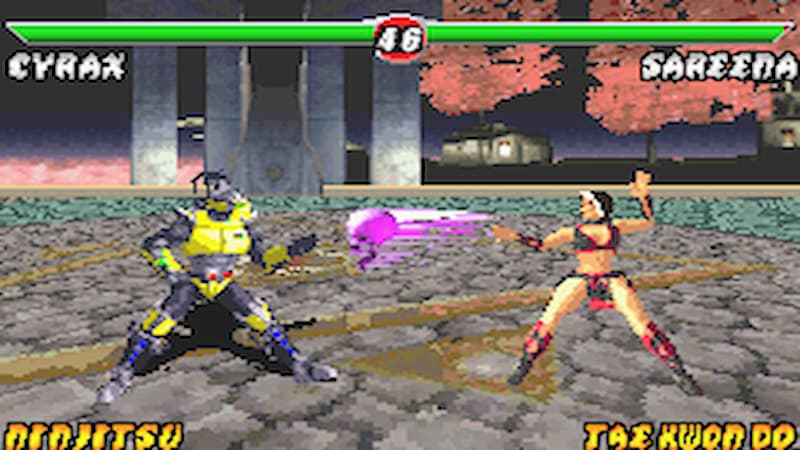
Image Credit: Midway Games, Warner Bros. Games
GBA adaptation of Deadly Alliance. Though visuals are primitive, it faithfully recreates the new fighting styles and story beats. Not much more to be said about this game.
14. Mortal Kombat: Deception (2004)
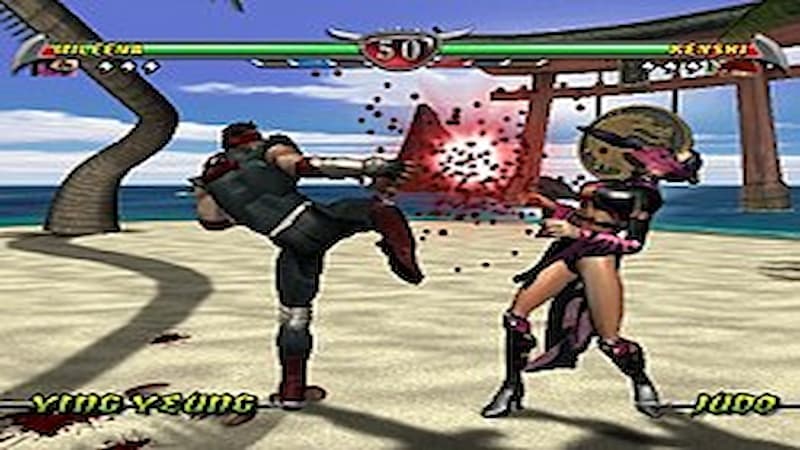
Image Credit: Midway Games, Warner Bros. Games
Featuring Konquest mode (character-driven adventure), Deception explores Onaga the Dragon King’s resurrection. Interactive stages with traps debut, and the series’ first puzzle minigame (“Test Your Might“) returns in new form.
15. Mortal Kombat: Unchained (2006)
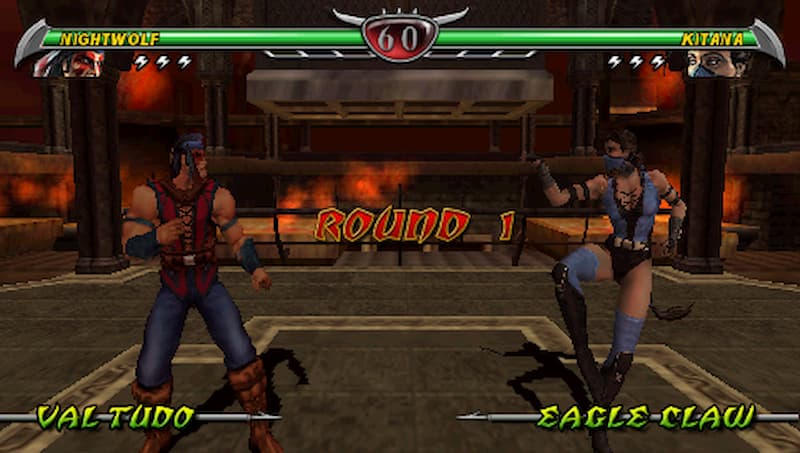
Image Credit: Midway Games, Warner Bros. Games
PSP adaptation of Deception, trimmed to fit portable play but retaining Konquest mode and core roster. Straightforward game with no defining features as compared to other entries.
16. Mortal Kombat: Armageddon (2006)
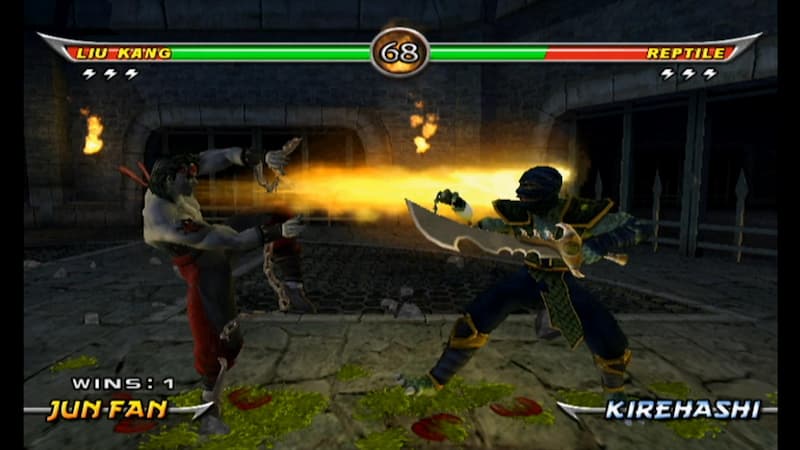
Image Credit: Midway Games, Warner Bros. Games
Described as the “end of all things“, Armageddon pits every character in the series against each other in a climactic showdown. It introduces the Kreate-A-Fighter system and cinematic Motor Kombat fatalities. The narrative sets the stage for the timeline reset to come.
17. Ultimate Mortal Kombat (2007)
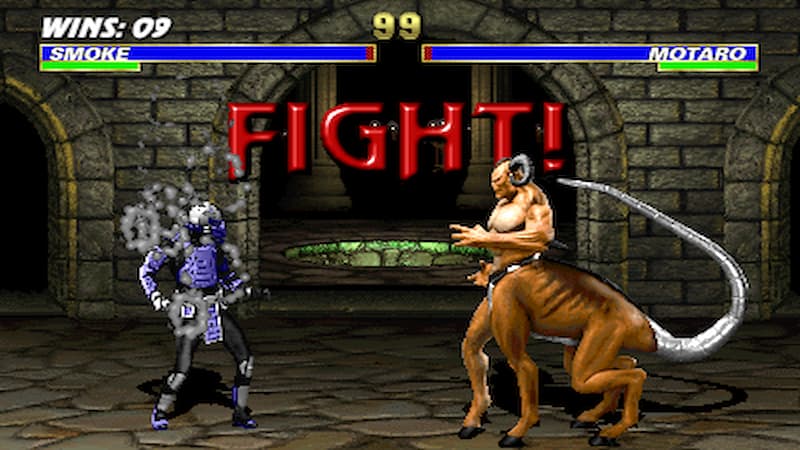
Image Credit: Midway Games, Warner Bros. Games
Nintendo DS adaptation of Ultimate MK3-akin to Advance but with dual-screen support and touch controls for fatalities.
18. Mortal Kombat vs. DC Universe (2008)

Image Credit: Midway Games, Warner Bros. Games
A non-canonical crossover pitched as Earthrealm and “DC Universe” heroes clashing. While it features two universes’ fatalities and character interactions, it exists in its own pocket timeline and does not affect the main saga.
Reboot Timeline: Mortal Kombat Games in Chronological Order
19. Mortal Kombat (2011)
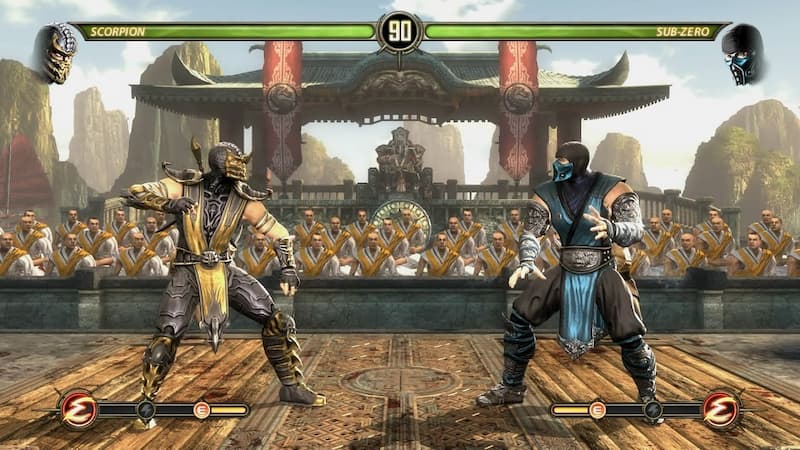
Image Credits: NetherRealm Studios, Warner Bros. Games
Often called MK9, this title rewinds the clock: Raiden sends a warning to his past self after Armageddon, creating a new reality. The game retells the first three tournaments with modernised graphics and combo mechanics, while drastically altering outcomes, effectively merging nostalgia with fresh twists.
20. Mortal Kombat Arcade Kollection (2011)
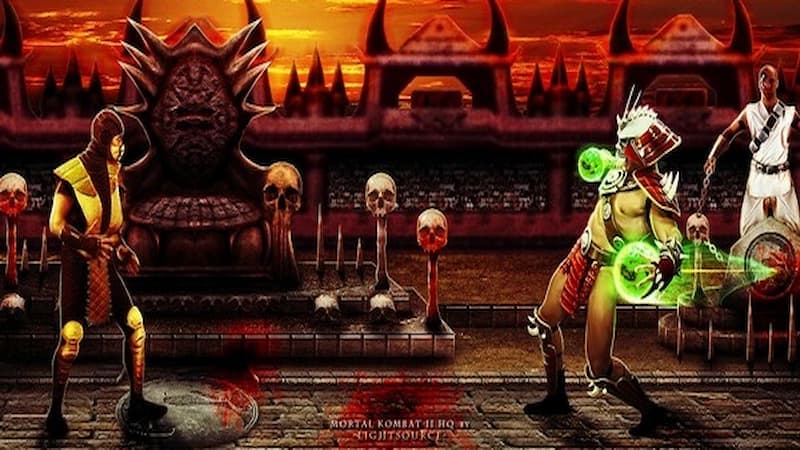
Image Credits: NetherRealm Studios, Warner Bros. Games
A digital compilation for consoles/PC, featuring emulated versions of the classic MK1, MKII, and UMK3. While not a new narrative entry, it offers context for newcomers to the series’ roots.
21. Mortal Kombat X (2015)
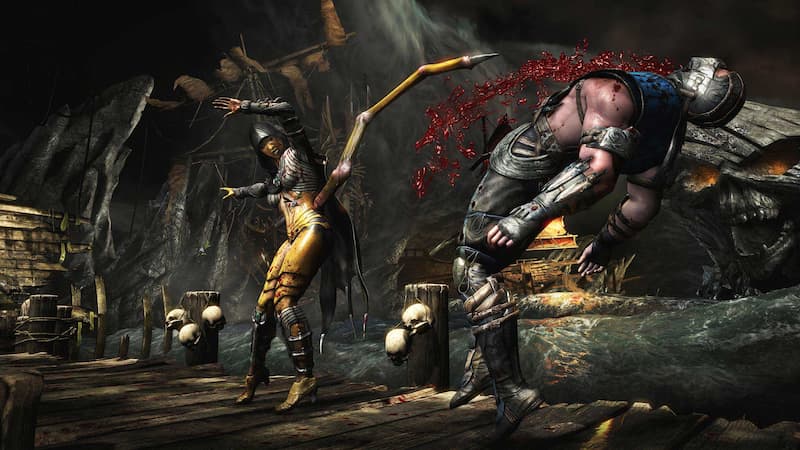
Image Credits: NetherRealm Studios, Warner Bros. Games
Set 25 years after MK9, this sequel sees the next generation of kombatants – Cassie Cage, Jacqui Briggs, and Takeda Takahashi, facing the threat of Shinnok reborn. New mechanics, like character-specific “Variation” movesets deepen combat strategy, while story cinematics rival blockbuster movies.
22. Mortal Kombat Mobile (2015)

Image Credits: NetherRealm Studios, Warner Bros. Games
This mobile-first fighter weaves a new campaign using characters and storylines spanning the entire franchise, blending collectable card-style progression with touch combat. While not part of the core timeline, its narrative ties to MKX help fill in side chapters.
23. Mortal Kombat 11 (2019)
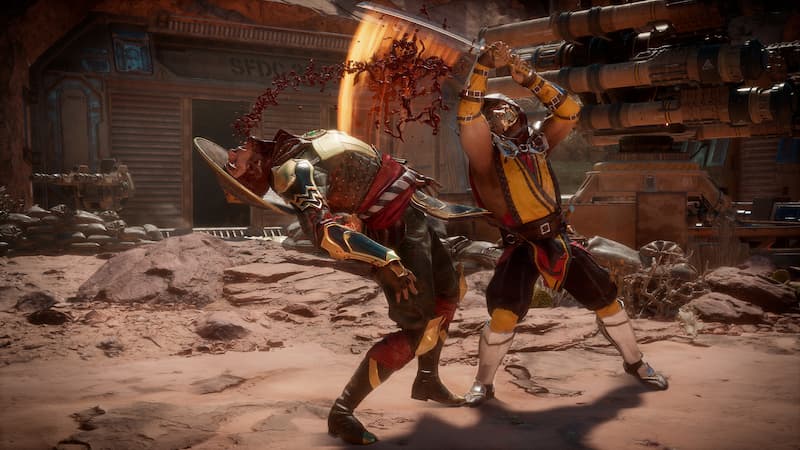
Image Credits: NetherRealm Studios, Warner Bros. Games
Continuing directly from MKX’s ending, Kronika – the Keeper of Time, seeks to reset history. MK11 introduces the Custom Character Variation system, immersive story mode with branching character arcs, and stunning Fatal Blow finishers.
24. Mortal Kombat 11: Aftermath (2020)
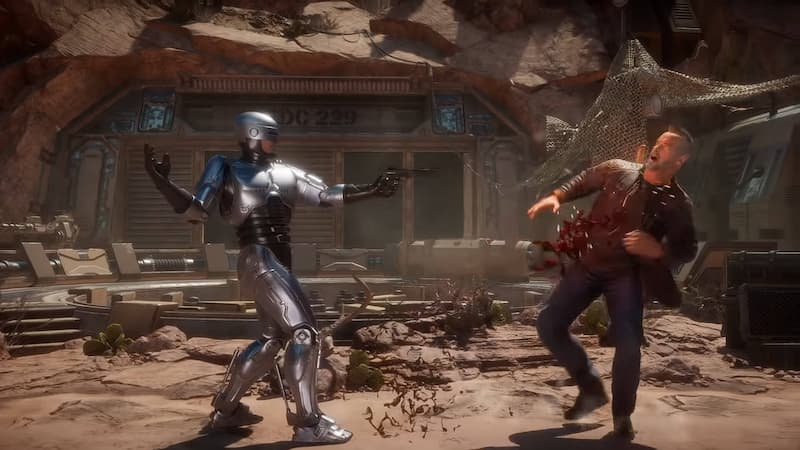
Image Credits: NetherRealm Studios, Warner Bros. Games
A cinematic DLC expansion that picks up where MK11 left off, adding playable characters (Fujin, Sheeva, Robocop) and new realms to explore, culminating in Kronika’s final defeat and the creation of a brand-new timeline, setting the stage for Mortal Kombat 1.
25. Mortal Kombat 11 Ultimate (2020)

Image Credits: NetherRealm Studios, Warner Bros. Games
The definitive MK11 edition, bundling the base game, Aftermath, and all Kombat Packs. It’s the ultimate way to experience the second reboot’s climax before moving into the latest entry.
26. Mortal Kombat: Onslaught (2023)
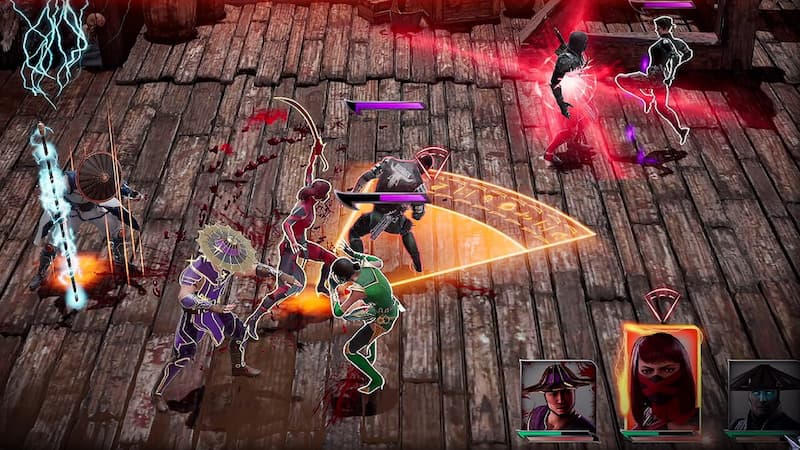
Image Credits: NetherRealm Studios, Warner Bros. Games
A mobile RPG spin-off set between MKX and MK11, featuring squad-based combat. Though it offered deep character progression, it was shuttered in October 2024, rendering its story non-canonical for newcomers.
Mortal Kombat 1 (2023)

Image Credits: NetherRealm Studios, Warner Bros. Games
This second major reboot follows the timeline forged at MK11’s conclusion: Raiden and Liu Kang build a new realm, Kronika’s legacy is erased, and familiar faces are reborn in altered roles. With a revamped art style, tag-team mechanics, and an emphasis on cinematic storytelling, MK1 reintroduces the franchise for the modern era.
Which of the Mortal Kombat games in order do you like most? Let us know in the comments below!
Read Also: All Mortal Kombat Characters
